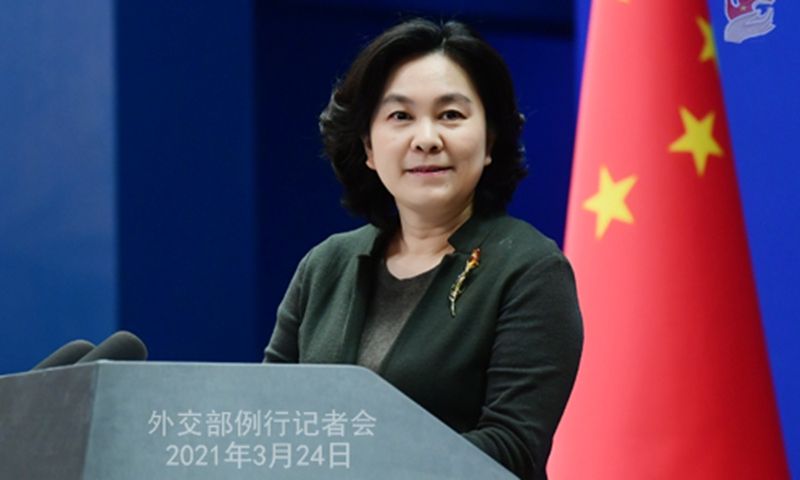
Chinese Foreign Ministry spokesperson Hua Chunying Photo: fmprc.gov.cn
China deserves to have a voice on the global stage, and it must speak up against the US discourse hegemony that often serves to throw dirt on China, a spokesperson of the Chinese Foreign Ministry said on Tuesday in response to a New York Times story that claimed that China is "using its money and power to create an alternative to a global news media dominated by outlets like the BBC and CNN."
At a press briefing on Tuesday, Hua Chunying, the spokesperson, pointed out that China, as the second-largest economy and the largest developing country in the world, deserves to have a voice in the global public opinion domain, where there should not only be voices from the West like CNN and the BBC.
"On top of that, faced with the US abusing its discourse hegemony to carry out unscrupulous attacks on China with false information under the guise of freedom, China must speak up, explain the truth, and leave an objective narrative on issues such as the handling of COVID-19, just as a responsible country should," Hua noted.
The New York Times on Sunday cited a report set to be released on Wednesday by the International Federation of Journalists, a Brussels-based union of journalists, which claims that Beijing is using its media infrastructure globally "to seed positive narratives about China… as well as mobilizing more novel tactics such as disinformation."
Chinese media organizations have upheld the principles of objectivity, fairness and truthfulness in reporting global news, Hua said.
Compared with the US, which recently passed a Strategic Competition Act that grants its government $300 million each year as a "Countering Chinese Influence Fund" to counter China's "malign influence," it was negligible that China sometimes provided some anti-epidemic assistance to some foreign media, Hua said.
"It would be ideological prejudice and political discrimination if the West treats global cooperation of China's Xinhua News Agency differently with that of other media outlets such as the Associated Press, Reuters and AFP," Hua added.
The New York Times report also accused China of cracking down on foreign correspondents within the country, while denying visas to US journalists.
Responding to the accusations, Hua reminded the US of its visa delay or refusal to over 20 Chinese reporters since 2018, meanwhile registering Chinese media correspondents in the US as foreign missions.
In March last year, 60 Chinese journalists stationed in the US were expelled, and the duration of stay for each visa of Chinese reporters was shortened to no longer than 90 days.
Xinhua reporters stationed in the US were forced to return home on May 1, Hua noted.
"That being said, it is utterly a distortion of the facts to claim that China is denying visas to foreign journalists," Hua said, adding that the duration of press cards for a majority of 500 foreign journalists in China is one year.
Global Times




